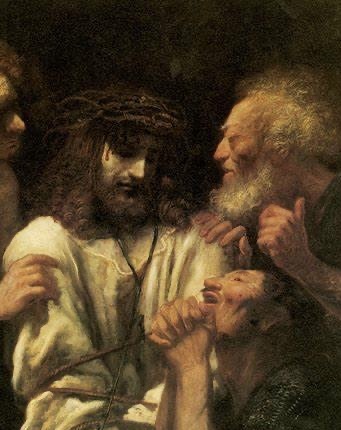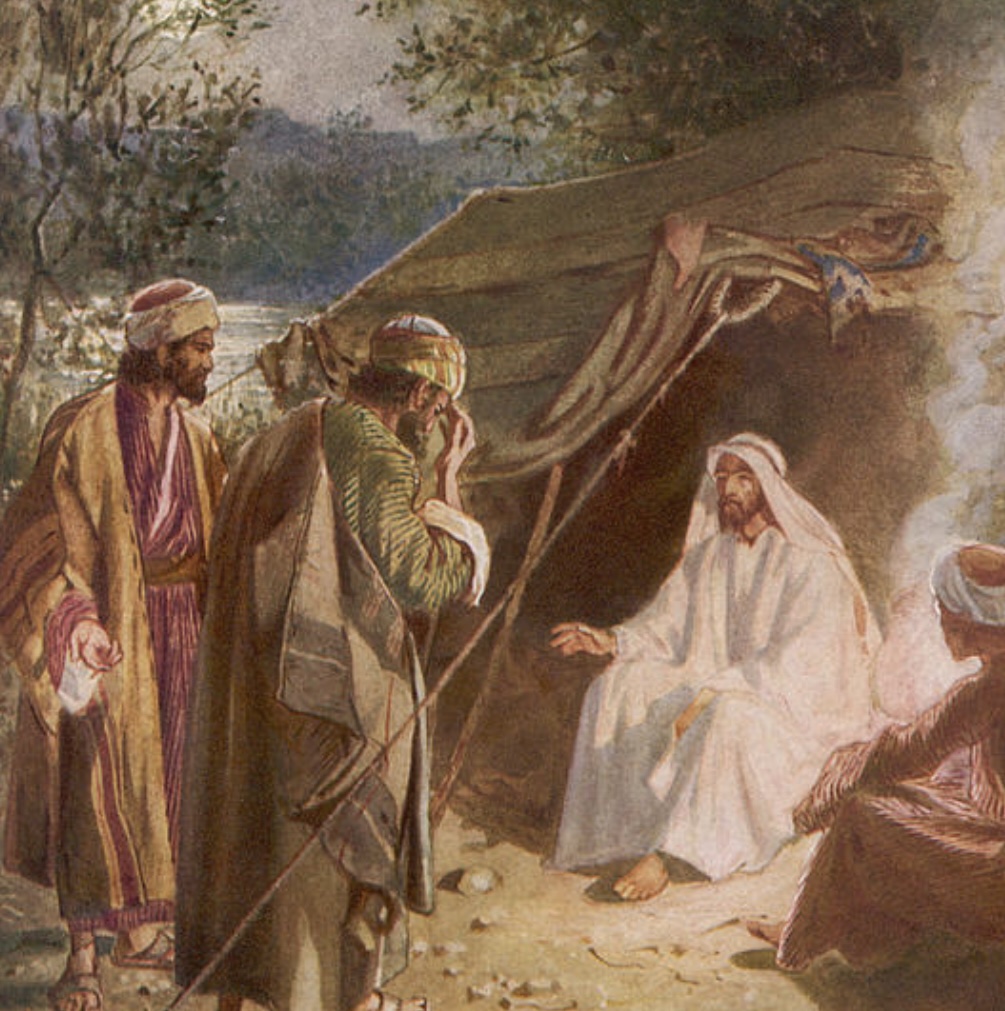Tags
Bible, Christian life, Christianity, discipleship, Easter, Easter homily, faith, homily, Jesus, resurrection, Third Sunday of Easter homily
I recently read an article where a woman by the name of Norann Voll reflects on the many lessons she learned from her father growing up on a farm during lambing season. At one point the author wrote this,
When the miracle of (the twin lambs) lay there in the sawdust and the ewe licked them off, urging them to stand for their first meal, I looked at Dad. His eyes shone as blue as chicory flowers and his face was wet with tears. “No human can create a beginning, Nora,” he said, “and no human can create an end. It’s all in God’s hands.”
Friends, this is a truth of faith and a lesson of Easter. Only God creates a beginning and an end. The first reading of the Easter Vigil Mass is the story of creation found in the Book of Genesis. After that reading the Church prays these words,
Almighty and ever-living God, who are wonderful in the ordering of all your works, may those you have redeemed understand that there exists nothing more marvelous than the world’s creation in the beginning except that, at the end of the ages, Christ our Passover has been sacrificed. Who lives and reigns for ever and ever.
… there exists nothing more marvelous than the world’s creation … except that, at the end of the ages, Christ our Passover has been sacrificed.
There is a tradition in our faith that Easter – the day of the resurrection of our Lord – should be considered the eighth day of creation. Only God can create a beginning. Only God is the author of life. Only God could enter the false end that we made – the silence of the tomb – break it open and create a new beginning for us. From the death of the tomb, Jesus rose!
This is the wonder that the readings throughout this season of Easter proclaim and that the first disciples experienced! In today’s gospel (Lk. 24:35-48), after the two disciples share how they encountered Jesus on the road to Emmaus, the risen Lord stands in the midst of his disciples, Peace be with you … Why are you troubled? … Look at my hands and my feet, that it is I myself. Touch me and see … Jesus showed them his hands and his feet, his wounds. God wastes nothing and God redeems all. Even the wounds of life are taken up into the new creation of the resurrection.
Only God creates a beginning and an end. There is nothing more wonderful than the world’s creation except, even more, the new creation brought about by the sacrifice and resurrection of Christ. This is the truth we know and the hope we live by as Christians.
If there are tombs in our lives – a besetting sin, an addiction, a wound inflicted or a pain endured – know that only God creates a beginning and only God creates an end. The tomb has been broken in the resurrection. Invite the risen Lord into that tomb. Welcome Christ even into that! Let his presence, his grace, his mercy pour forth and know that all tombs can be broken in Christ.
“No human can create a beginning, Nora,” he said, “and no human can create an end. It’s all in God’s hands.”











